Some time ago, we covered how to add apps to Startup in Windows 10. However, if you want to add an app installed from the Windows Store to Startup, you cannot use traditional methods. Here is how it can be done.
Advertisеment
Starting with Windows 8, the Store app and many other Modern apps are included with the OS. The Store app in Windows 10 allows the user to install more Modern apps, built using the Universal Windows Platform. Windows 10's Store app also includes more content besides apps such as books and themes.
If you have an app from the Store and you wish to make it load at Windows startup, you will quickly realize that it is not obvious how this can be done.
The method described below is a little bit tricky. It involves a special shell folder which can be opened by the following command (type it in the Run dialog):
shell:AppsFolder
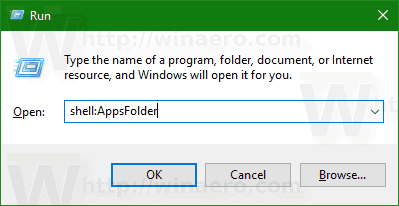
Note: The command above is a special Shell command. See the following article:
List of shell commands in Windows 10
Here is how it looks:
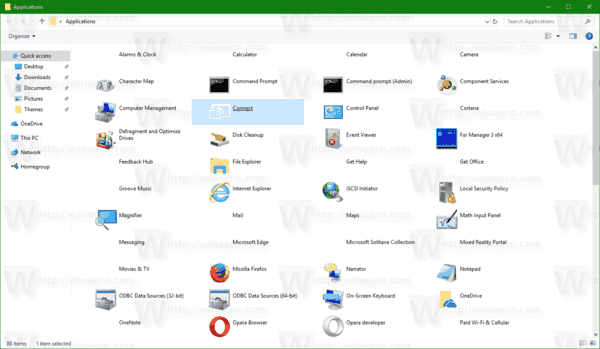
The folder shows all installed apps in a single view. Windows Store apps are shown along with classic Desktop apps.
Readers of Winaero are quite familiar with this folder. In our previous articles, we used it a lot. See
- How to start a Modern app from desktop without going to the Metro Start Screen
- How to launch the Universal File Explorer app in Windows 10
- Run the Lock Screen as a regular Modern app in Windows 10 with a shortcut or command line
Now, let's see how we can use this folder to add Store apps to startup.
To add Store apps to Startup in Windows 10, do the following.
- Press the Win + R keys together on your keyboard to open the Run dialog and type shell:AppsFolder in the run box.

- Press the Enter key to open the Applications folder.
- Now, press the Win + R keys again to open the Run dialog and type another shell command. shell:Startup, then press Enter. This will open your Startup folder. See the following screenshot.

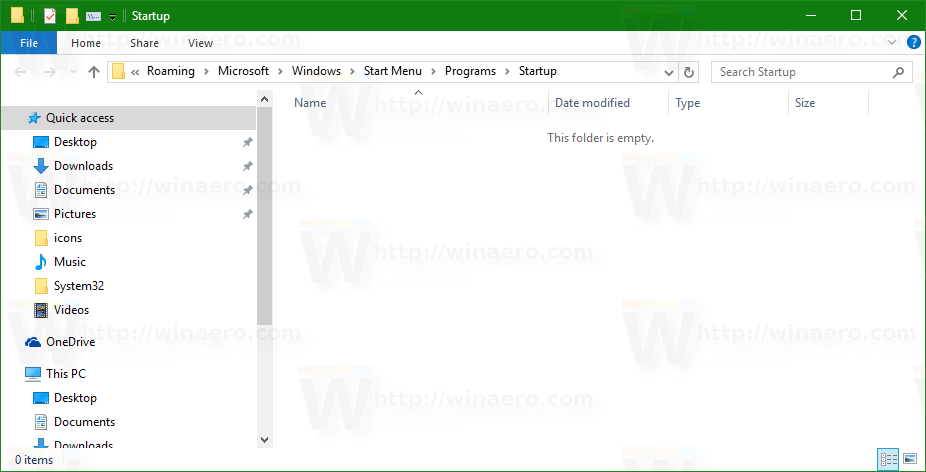
- Now you have two File Explorer windows opened.
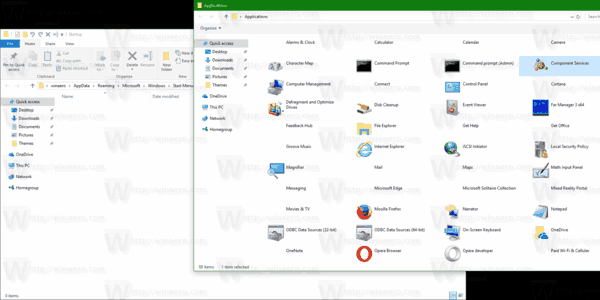
Find the required Store app in the Applications window and drag-and-drop its icon to the Startup folder.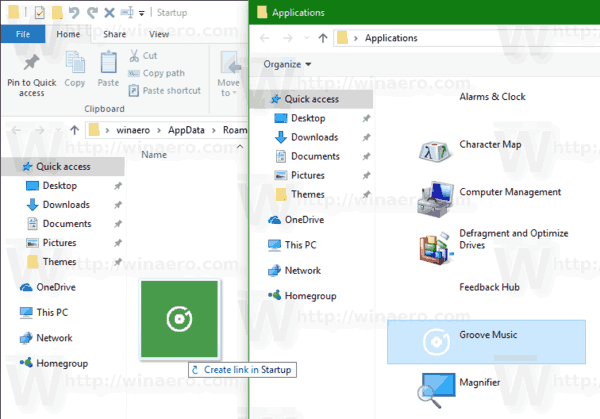
Windows will create a shortcut for the app instantly!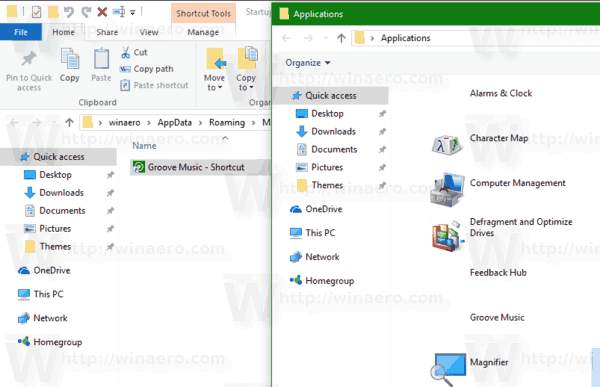
You are done. Now, sign out and sign in to your user account to test the changes you made. The app will open automatically.
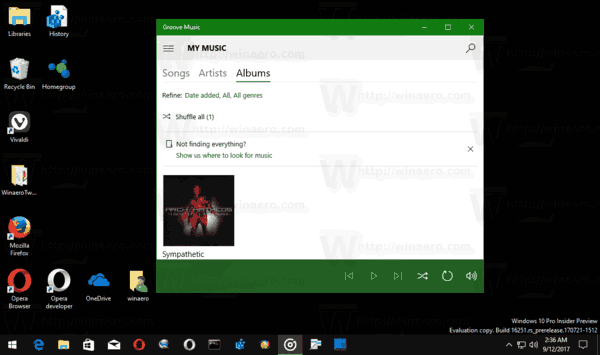
That's it.
Support us
Winaero greatly relies on your support. You can help the site keep bringing you interesting and useful content and software by using these options:

Would it not be simpler to just drag it onto the Startup folder from the start menu?
Have you tried? This doesn’t work for me.
Yeah it does. For both Desktop and Startup folder… or any other folder for that matter.
As I drag it out of the start menu, the icon gains an additional “Square with an arrow” icon and says “link”.
Also when dragged out of the start menu, the shortcut preserves the exact name (Without the “- Shortcut” bit at the end).
very nice
How to make it, but application open in kiosk mode?
Jesus Christ, the goddamn trouble we have to go through to make a friggin shortcut. Why does Microsoft have to make everything so damn complicated and as hidden and buried as possible, so that god forbids the user might actually get to understand his OS or tweak it to his needs.
Why do these apps have to be hidden (try finding out the location where they’re installed)? Why can’t you just drag and drop them from the start menu? Why the secret commands? Why is not everything a simple text file in plain sight, just like in Linux? Are they so stupid to believe obscurity is security? It’s just annoying users and nothing more.